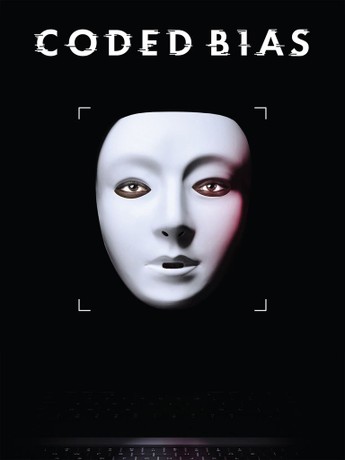A collection of projects I’ve worked on that center privacy, security, equity, and rights. Most, if not all, of these were done in collaboration with others and while I haven’t been able to list everyone here, I truly appreciate the many people who helped make these projects successful.

BAD INPUT
BAD INPUT is a documentary short series that looks at how biases in algorithms and data sets result in unfair practices for communities of color, often without their knowledge. In 2023, BAD INPUT was selected as a Silver Winner in the 3rd Annual Anthem Awards and a Finalist in the Short Awards for best of digital and social media.

Consumer Cyber Readiness Report
The second annual Consumer Cyber Readiness report reveals continued progress in consumer cybersecurity practices through the adoption of data and privacy practices, awareness of security tools, and improved posture online. The report features commentary from top privacy and security professional on emerging tools and services, such as passkeys and the Cyber Trust Mark, as ways to shift the responsibility away from consumers and enable them to make more informed decisions when selecting devices or platforms.

Security Planner
Security Planner is a free, easy-to-use guide to staying safer online. It provides personalized recommendations and expert advice on topics such as keeping social media accounts from being hacked, locking down devices ranging from smartphones to home security cameras, and reducing intrusive tracking by websites. Originally created by Citizen Lab where I contributed content, I also led the growth of Security Planner in it’s new home at Consumer Reports.

Building a Movement for Algorithmic Justice
Launched a free two-week screening of the trailblazing film Coded Bias that reached 15,000 people. Followed by a post-screening discussion on how we build a social movement to address the threat of artificial intelligence on our civil rights and democracy. Experts from Coded Bias, Color of Change, Algorithmic Justice League, and Data Nutrition Project discussed the role of civil society and social justice organizations in creating awareness and accountability around algorithmic issues.

Human Rights Centered Design Curriculum
The Human Rights Centered Design Curriculum is an online, open source curriculum focusing on how to center human rights throughout the research, design, and development processes. It builds out an accessible, teachable methodology based on the Secure UX Checklist with extensive research from communities to build and refine products, we are offering: best practices, use cases, and knowledge from human rights activists, community organizers, and technologists from across the globe.

Should You Use Passkeys Instead of Passwords?
Google and Apple have rolled out passkeys, but the technology isn’t yet seamless across all browsers, operating systems, and devices. In this article we discuss the opportunities and challenges with evolving passkeys.

Fight For Fair Internet
Consumer Reports launched the Fight for Fair Internet campaign to encourage policymakers and service providers to make broadband more accessible and affordable. By engaging consumers in the research, we collected and analyzed more than 22,000 consumer broadband bills in order to shine a light on: determining what consumers pay for internet service, and exactly what they get for their money.

Dark Pattern Tip Line
The Dark Patterns Tip Line is led by a team of designers, academic researchers, legal experts, policy specialists, and advocacy-minded individuals. In collaboration with advisors from Access Now, Electronic Frontier Foundation (EFF), Pen America, and DarkPatterns.org, we’ve come together to collect dark patterns to better understand how technology is exploiting people. Our ultimate vision is to leverage this data to combat manipulative practices online through policy reform.
Universal Periodic Review and Advocacy in Myanmar
While working with Equality Myanmar (EQMM), a grassroots nonprofit organization based in Yangon that promotes human-rights education and advocacy, our team collaborated with EQMM to support their campaign around Myanmar’s third Universal Periodic Review (UPR), conducted under the auspices of the UN Human Rights Council, and develop supporting advocacy materials.

Mozilla Clubs
Mozilla Clubs provided spaces for individuals to connect and contribute to a health web. While designing curriculum and resources, we worked with hundreds of clubs around the world to spread digital literacy and education.

The Revolution: Read, Write, And Participate On The Web
For it’s ten year anniversary, Mozfest – the annual conference run by Mozilla Foundation – produced a book and invited individuals to contribute. Chris Lawrence and I wrote a chapter on what’s its been like to watch digital skills grow in the decade.